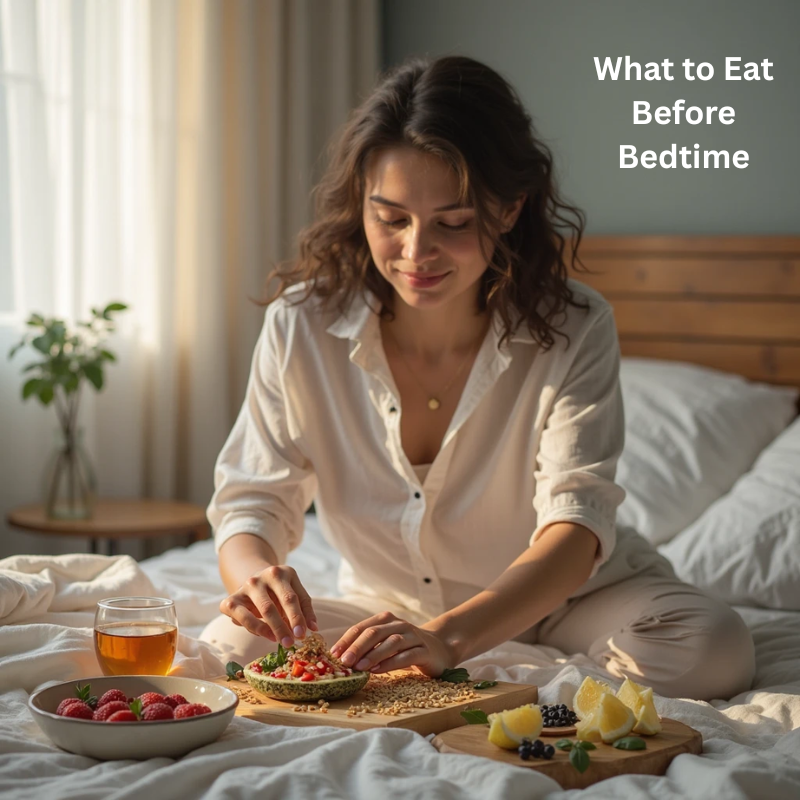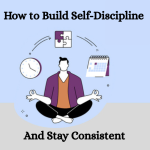Good sleep isn’t just about turning off screens and dimming the lights it starts hours before you hit the pillow. One of the most overlooked factors that affect sleep quality is what we eat before bedtime. Knowing what to eat and avoid before bedtime can make the difference between restless nights and peaceful sleep.
How Food Affects Your Sleep Cycle
The body’s natural circadian rhythm controls the sleep-wake cycle, and it is deeply influenced by hormones like melatonin and cortisol. The nutrients in your meals, along with their timing, play a key role in supporting your metabolic health, which in turn impacts sleep quality. Eating the right foods promotes relaxation and melatonin production, while the wrong ones can disrupt metabolism, cause digestive issues, spike blood sugar levels, and even contribute to insomnia.
What to Eat Before Bedtime

Choosing the right bedtime snacks or dinner ingredients can promote restful, uninterrupted sleep. Here are the best options for nighttime nutrition:
Complex Carbohydrates
Foods like oatmeal, sweet potatoes, and whole grain crackers are rich in complex carbs. These help increase the availability of tryptophan, an amino acid that helps produce serotonin and melatonin. They digest slowly, keeping you full through the night.
Lean Proteins
Turkey, chicken breast, cottage cheese, and eggs are rich in tryptophan. Eating lean protein in moderate amounts before bed can promote sleep without overloading your digestive system.
Magnesium-Rich Foods
Magnesium plays a critical role in sleep regulation. Bananas, almonds, spinach, and avocados are great sources. They help relax muscles and calm the nervous system naturally.
Herbal Teas
While not technically a food, drinking a warm cup of chamomile, valerian root, or peppermint tea can be incredibly soothing. These herbal infusions promote relaxation and digestion.
Greek Yogurt
Low in sugar and high in protein, Greek yogurt contains calcium, which helps the brain use tryptophan to manufacture melatonin. It’s a great light snack before sleep, especially when paired with a calming yoga session to help relax both body and mind.
What to Avoid Before Bedtime
Knowing what to eat and avoid before bedtime also means steering clear of foods that can disrupt your sleep. These should be limited or avoided in the evening hours.
Caffeine and Chocolate
Caffeine can stay in your system for 6 8 hours. Coffee, energy drinks, certain teas, and chocolate should be avoided in the evening. Even small doses can delay sleep and reduce sleep quality.
Spicy and Acidic Foods
Foods like chili, salsa, tomato sauce, and citrus fruits can trigger heartburn and acid reflux, especially when lying down. They also increase body temperature, which can interfere with melatonin production.
High-Fat and Fried Foods
These are heavy and slow to digest, which can lead to bloating and discomfort. Fatty meals may also reduce time spent in deep sleep.
Alcohol
While alcohol may initially make you feel sleepy, it disrupts your natural sleep cycle. It interferes with REM sleep, increases nighttime awakenings, and leads to poorer sleep quality overall.
Sugary Snacks and Refined Carbs
Cookies, pastries, and sweetened cereals may cause a spike in blood sugar, followed by a crash during the night. This can lead to restlessness, vivid dreams, or even waking up in the middle of the night.
Ideal Timing for Your Last Meal
Eating too close to bedtime can cause indigestion and disrupt sleep. Ideally, your last big meal should be 2–3 hours before going to bed. If you’re hungry close to bedtime, choose a light snack that’s high in protein and complex carbs, like a banana with almond butter or a small bowl of oatmeal. Pair it with some gentle stretching to relax your muscles and prepare your body for restful sleep.
Building a Nighttime Eating Routine
Consistency is key when it comes to eating habits. Here’s how to align your evening meals with healthy sleep patterns:
- Plan dinners rich in vegetables, lean proteins, and whole grains
- Avoid eating heavy meals after 8 PM
- Stay hydrated, but reduce fluid intake 1–2 hours before bed to avoid nighttime trips to the bathroom
- If needed, keep a list of go-to bedtime snacks that support good sleep
Listen to Your Body
Everyone’s digestive system and sleep needs are different. While some people sleep better after a light snack, others feel best with an earlier dinner and no late eating. Experiment and track how different foods affect your sleep quality. Keep a sleep diary if necessary.
Why It Matters
Sleep isn’t just rest—it’s restoration. Poor sleep impacts everything from mood to metabolism, and the food choices you make at night are an essential part of the equation. By understanding what to eat and avoid before bedtime, you’re not just helping yourself fall asleep faster you’re improving your overall health.
FAQs
What is the best bedtime snack for good sleep?
A combination of complex carbohydrates and lean protein works best. Try a small bowl of oatmeal with milk or a banana with peanut butter. These promote melatonin production and keep you satisfied through the night.
Can I drink milk before bed?
Yes, warm milk contains tryptophan and calcium, both of which help the brain produce melatonin. It can be a comforting and effective natural sleep aid.
Is it okay to eat late at night if I’m hungry?
If you’re truly hungry, eat a small, balanced snack. Avoid high-sugar and high-fat foods. Something light, like Greek yogurt or a slice of whole-grain toast with almond butter, is a better choice.
Does skipping dinner help with sleep?
Not necessarily. Going to bed hungry can make it hard to fall asleep. Aim for a balanced dinner at least 2–3 hours before bedtime to avoid both hunger and indigestion.
Conclusion
Understanding what to eat and avoid before bedtime is a powerful tool for improving your sleep quality naturally. The right dietary choices can help you fall asleep faster, stay asleep longer, and wake up feeling more refreshed and energized.
If you’re serious about enhancing your sleep and overall wellness through better habits, explore more expert-backed tips and health insights at MindScribes. Let your transformation start with the power of smart, mindful eating.

